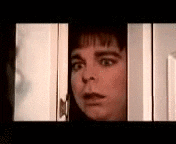Jeff,
I think it's only fair that you get a proper briefing this time.
Here's the scenario: James Maybrick dies on May 11, 1889. On March 9, 1992, his study floorboards are known to have been raised on the record for the first time in the intervening 37,557 days (including March 9, 1992, obviously). Now, if you knew that during those 37,557 days, someone had 'phoned a literary agent claiming to have the diary of Jack the Ripper where James Maybrick turned out to be the purported author, what were the odds that those two events would happen on the same day out of the 37,557 by sheer chance alone?
I hope that you and I can agree that - at the very simplest level of probability analysis - those odds are:
Number of times the floorboards were raised (on the record) divided by the number of days which the floorboards could have come up.
There's some debate about how big our numerator should be, but - as we're talking on the record events - I think you'll agree that that is 1 over 37,557?
(As I've said, I'd accept '2' if you want to include the unknown day in the 1960s that Maybrick's old office was demolished.)
Now, you and I know that we would never ever ever ever ever bet on anything where the odds were 1/37,557 (or 2/37,557) because we are statisticians and we know that those odds are truly awful.
Now, take a deep breath, Jeff. Those two events did happen during those 37,557 days (they obviously didn't have to) and - lo and behold - they happened on the same day. Yes, the very first time the floorboards were raised on the record after an agonising wait of 37,557 days, the 'phone call went in to the literary agent.
Cut to the chase: the chances of this happening by chance alone were 1/37,557 (or 2/37,557) - agree or disagree?
Additional information you may want to cogitate over:
1) The call could have been made from anywhere in the entire world, but the guy who made that call came from Liverpool, where the floorboards were raised that morning; and
2) Although Maybrick's house was EIGHT MILES away from where 'Phonecall Guy lived, a member of the electrical team just happened to drink in the same pub as he.
Please don't attempt to influence the initial calculation with that information. Please just confirm that you agree the odds of that first coincidence happening by chance alone were either 1/37,557 or 2/37,557 (please stick to on the record events for your numerator otherwise you aren't going to be answering the question you've been asked).
Ike
I think it's only fair that you get a proper briefing this time.
Here's the scenario: James Maybrick dies on May 11, 1889. On March 9, 1992, his study floorboards are known to have been raised on the record for the first time in the intervening 37,557 days (including March 9, 1992, obviously). Now, if you knew that during those 37,557 days, someone had 'phoned a literary agent claiming to have the diary of Jack the Ripper where James Maybrick turned out to be the purported author, what were the odds that those two events would happen on the same day out of the 37,557 by sheer chance alone?
I hope that you and I can agree that - at the very simplest level of probability analysis - those odds are:
Number of times the floorboards were raised (on the record) divided by the number of days which the floorboards could have come up.
There's some debate about how big our numerator should be, but - as we're talking on the record events - I think you'll agree that that is 1 over 37,557?
(As I've said, I'd accept '2' if you want to include the unknown day in the 1960s that Maybrick's old office was demolished.)
Now, you and I know that we would never ever ever ever ever bet on anything where the odds were 1/37,557 (or 2/37,557) because we are statisticians and we know that those odds are truly awful.
Now, take a deep breath, Jeff. Those two events did happen during those 37,557 days (they obviously didn't have to) and - lo and behold - they happened on the same day. Yes, the very first time the floorboards were raised on the record after an agonising wait of 37,557 days, the 'phone call went in to the literary agent.
Cut to the chase: the chances of this happening by chance alone were 1/37,557 (or 2/37,557) - agree or disagree?
Additional information you may want to cogitate over:
1) The call could have been made from anywhere in the entire world, but the guy who made that call came from Liverpool, where the floorboards were raised that morning; and
2) Although Maybrick's house was EIGHT MILES away from where 'Phonecall Guy lived, a member of the electrical team just happened to drink in the same pub as he.
Please don't attempt to influence the initial calculation with that information. Please just confirm that you agree the odds of that first coincidence happening by chance alone were either 1/37,557 or 2/37,557 (please stick to on the record events for your numerator otherwise you aren't going to be answering the question you've been asked).
Ike



Comment